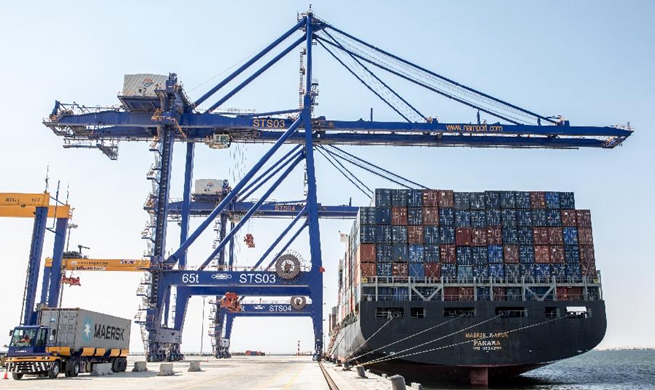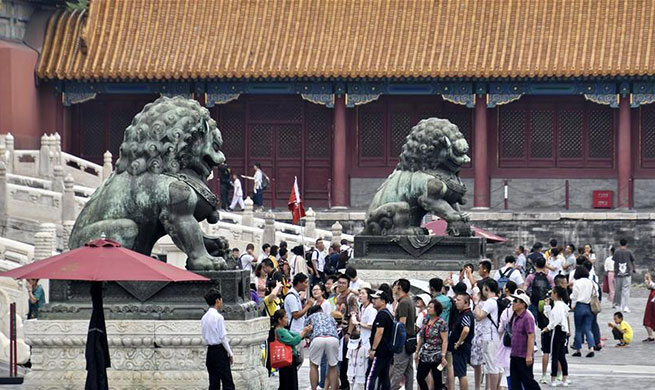SAN FRANCISCO, Aug. 2 (Xinhua) -- Any attempt to decouple the United States from China economically and technologically will surely undermine innovation and hurt cultural exchanges between the two countries, a senior Silicon Valley investor said Friday.
Although both the United States and China have their due concern about technologies that impact their national security, 98 percent of all technology does not involve security and only involves commerce and lifestyle, Steve Hoffman, a veteran investor in Silicon Valley, said in an exclusive interview with Xinhua.
"In real issues like health, I don't think these things should be separated, and if you separate these things, it will wind up causing a slower innovation," he said.
"Economic and technological separation between the U.S. and China will hurt both economies and wind up really hurting universities that exchange knowledge and research centers in our ability as a human race to make progress," Hoffman said.
The Silicon Valley entrepreneur was commenting on an announcement by U.S. President Donald Trump on Thursday to place additional 10 percent tariffs on remaining 300 billion U.S. dollars worth of Chinese imports starting on September 1.
Since Trump initiated tariff disputes with China last year, some people in Washington have been trumpeting "decoupling" American companies and their technologies from China's supply chains, which aimed to split apart the world's two biggest economies.
Hoffman called decoupling of science and technology "a shame."
"It's a shame for the world. All the world's universities and research centers share fundamental information and knowledge about DNA, about cancer, about extending our lives, about ways to combat climate change, and about business and commerce," he said.
Hoffman, who is also CEO of Founders Space, a leading incubator and accelerator in Silicon Valley, and has successfully facilitated many hi-tech startups in China, said the new round of tariffs will exert a much stronger impact on big companies in Silicon Valley than smaller startups.
"Right now, big companies like Apple, Intel and Microsoft sell their products into China. If China retaliates in an escalating trade war, they will pay the price," he said.
He noted that China sits at the center of the world economy, and it is at the center of the global supply chain -- from electronics to textiles, from IT to cars and car parts.
"There are parts for all sorts of different manufactured goods made in China, even though the goods may be made in Indonesia, even though the final product may be assembled here in the U.S., those parts are coming from China," he said.
Economic separation and tariffs will push up those prices proportionally, and then American consumers will suffer and pay for the rising prices, said Hoffman.
"I'm working in Silicon Valley and working with all of those American startups as well as Chinese startups. For my business, I personally hope that at the end of the day the trade war will end soon," he said.













